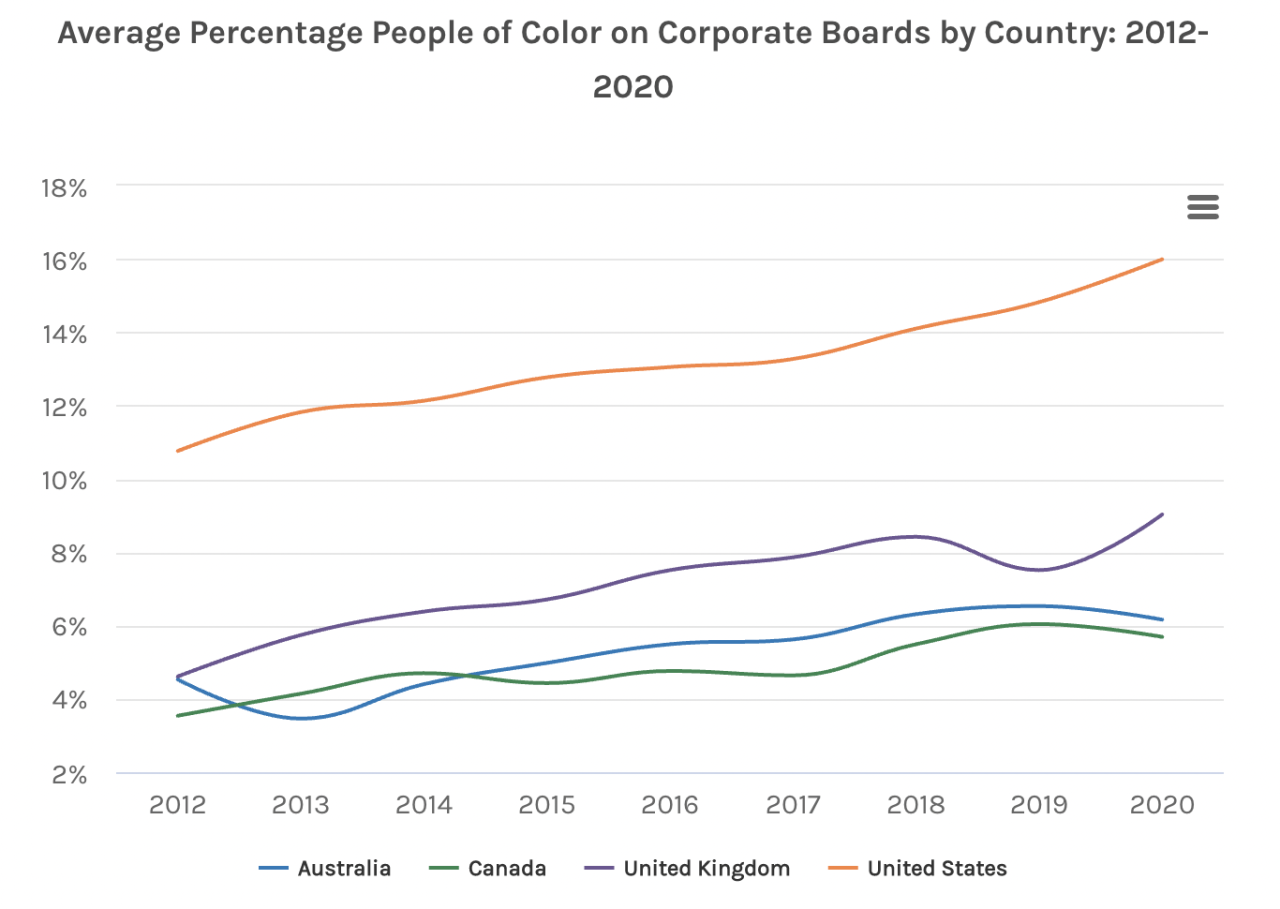SOURCE: Morgan Stanley
SUMMARY:
A new study from Calvert, a unit of Morgan Stanley Investment Management, examines whether racial and ethnic board diversity can have a positive effect on stock performance.
DESCRIPTION:
Diversity in corporate hiring has become more than a social imperative. Today, many companies see workforce diversity as a strategy to help attract and retain talent, enhance intellectual capital and drive long-term value creation.
But how does diversity in the boardroom affect financial performance? A new study by Calvert Research and Management, a unit of Morgan Stanley Investment Management, has some answers.
According to the study, which analyzed more than 800 large-cap companies in the United States, United Kingdom, Canada and Australia from 2012 to 2020, companies with greater board diversity may in fact be better stock picks.
“Our research suggests that using racial and ethnic board diversity factors can improve U.S. large-cap equity stock selection,” says Yijia Chen, ESG Quantitative Research Analyst and Index Manager at Calvert, who wrote the report. “There may be additional benefit in tilting toward more diverse companies across all four developed markets.”
Boardroom Ethnic Diversity and Financial Performance
For U.S. companies, the study found, racial and ethnic diversity on the corporate boards of large-caps had a significant positive impact on stock price: The difference in returns between stocks of companies with the highest number of people of color on their boards and those with the least was 1.5%. Calvert measured stock prices using the MSCI’s Gross Total Returns database, which includes dividends, and the returns were calculated on a monthly basis, then annualized.
Less significant was the relationship between board ethnic diversity and stock prices for Australian, Canadian and British companies. “While we know these countries are less diverse than [the U.S.] and that their boards are relatively less diverse, other factors may be at play,” the report says. Key differences among these economies may have contributed to the disparity, the study found, noting that “the American economy is relatively more reliant on talent and innovation, which will provide equal opportunities for individuals of diverse backgrounds, while a large portion of the Australian and Canadian economies remain natural resources-based.”

The study’s findings contribute to growing data on the positive performance of environmental, social and governance (ESG) practices, of which diversity is a key part. Though lingering concerns about returns remain the biggest barrier to widespread sustainability investing, according to a recent report from the Morgan Stanley Institute for Sustainable Investing, 80% of investors still believe that companies with strong ESG practices can generate higher returns and make better long-term investments.
As demand for sustainable investing continues to grow, investors should engage corporations about their diversity initiatives, not only to help optimize the bottom line but to push the envelope in creating a more equitable future, the Calvert report says. “Through rigorous corporate engagement aimed at improving corporate behaviors on diversity, equality and inclusion, we can encourage a change in corporate behavior that can lead to a more sustainable and equitable world.”
Source of Data: Calvert Research & Management.
Date of Data: July 15, 2021.
Risk Considerations
Investing involves risk including the risk of loss. The value of equity securities is sensitive to stock market volatility. Investments in foreign instruments or currencies can involve greater risk and volatility than U.S. investments because of adverse market, economic, political, regulatory, geopolitical, currency exchange rates or other conditions. There is no guarantee that any investment strategy, including those with an ESG focus, will work under all market conditions. Investors should evaluate their ability to invest for the long-term, especially during periods of downturn in the market. Past performance is no guarantee of future results.
The views and opinions are those of the author as of the date of publication and are subject to change at any time due to market or economic conditions and may not necessarily come to pass. The views expressed do not reflect the opinions of all investment personnel at Morgan Stanley Investment Management (MSIM) and its subsidiaries and affiliates (collectively the Firm”), and may not be reflected in all the strategies and products that the Firm offers. This material is for the benefit of persons whom the Firm reasonably believes it is permitted to communicate to and should not be forwarded to any other person without the consent of the Firm. It is not addressed to any other person and may not be used by them for any purpose whatsoever. It expresses no views as to the suitability of the investments described herein to the individual circumstances of any recipient or otherwise. It is the responsibility of every person reading this material to fully observe the laws of any relevant country, including obtaining any governmental or other consent which may be required or observing any other formality which needs to be observed in that country. Unless otherwise stated, returns and market values contained herein are presented in U.S. dollars.
This material is a general communication, which is not impartial, is for informational and educational purposes only, not a recommendation to purchase or sell specific securities, or to adopt any particular investment strategy. Information does not address financial objectives, situation or specific needs of individual investors. Any charts and graphs provided are for illustrative purposes only. Any performance quoted represents past performance. Past performance does not guarantee future results. All investments involve risks, including the possible loss of principal.
Prior to making any investment decision, investors should carefully review the strategy's / product's relevant offering document. For the complete content and important disclosures, refer to the white paper, “Does an Ethnically Diverse Board Mean Better Stock Performance?,” here.
KEYWORDS: Morgan Stanley, NYSE: MS, Boardroom Ethnic Diversity, Calvert Research and Management
















